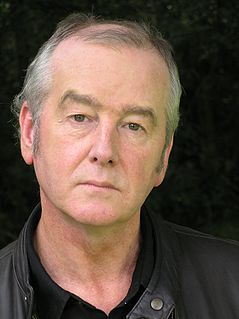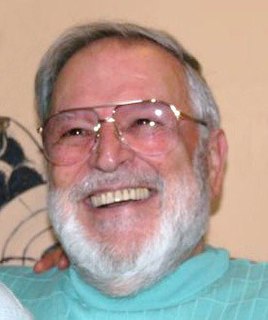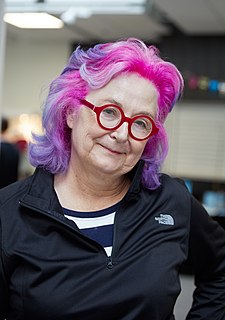A Quote by Elizabeth Edwards
You know, I once read a short story about how much you could tell about people from their shoes. You could tell where they had been, what they did, whether they were real walkers.
Related Quotes
I'll think about something else. I'll just sit quietly. If I could sit still. If I could sit still, maybe I could read. Oh, all the books are about people who love each other, truly and sweetly. What do they want to write about that for? Don't they know it isn't true? Don't they know it's a lie, it's a God-damned lie? What do they have to tell about that for, when they know how it hurts?
I read the story and reread the story, but I still could not find the universality that the little Irishman had spoken of. All I saw in the story was some Irishmen meeting in a room and talking politics. What had that to do with America, especially with my people? It was not until years later that I saw what he meant ... I began to listen, to listen closely to how they talked about their heroes, to how they talked about the dead and how great the dead had once been. I heard it everywhere.
I thought how you can never tell just by looking at them what they were thinking or what was happening In their lives. Even when you got daft people or drunk people on buses, people that went on stupid and shouted rubbish or tried to tell you all about themselves, you could never really tell about them either... I knew if somebody looked at me, they'd know nothing about me, either.
When I was there at Marvel, everybody thought if you could draw well and you could do sensational panels, that you were going to be a success. The truth is that no matter how good or bad you are as a draftsman, if you can't tell a story, you don't last in comics. ...About halfway through my stay at Marvel, I realized I was being paid to tell a story, not do a drawing. That's why my stuff is always rather simple and uncomplicated compared to a lot of guys.
Her name sprang to my lips at moments in strange prayers and praises which I myself did not understand. My eyes were often full of tears (I could not tell why) and at times a flood from my heart seemed to pour itself out into my bosom. I thought little of the future. I did not know whether I would ever speak to her or not or, if I spoke to her, how I could tell her of my confused adoration.
If you gauge how you're doing on whether somebody is responding vocally or not, you're up a creek. You can't do that; you kind of have to be inside of your work and play the scene. And tell the story every day. Tell the story. Tell the story. Regardless of how people are responding, I'm going to tell the story.
I have a degree in cinema studies and the big paper I wrote at the end of that was about Judy Garland and Liza Minnelli. So I thought that I knew quite a bit about Judy Garland, but I read in passing that the Stonewall riots were a reaction to her death and I had never really read enough to know what that meant or how that could be true. I was interested in that I knew so much about Judy Garland, but I really didn't know this story.
I couldn't give away my husband's shoes. I could give away other things, but the shoes - I don't know what it was about the shoes, but a lot of people have mentioned to me that shoes took on more meaning than we generally think they do... their attachment to the ground, I don't know - but that did have a real resonance for me.
although she went home that night feeling happier than she had ever been in her short life, she did not confuse the golf course party with a good party, and she did not tell herself she had a pleasant time. it had been, she felt, a dumb event preceded by excellent invitations. what frankie did that was unusual was to imagine herself in control. the drinks, the clothes, the instructions, the food (there had been none), the location, everything. she asked herself: if i were in charge, how could i have done it better?




































